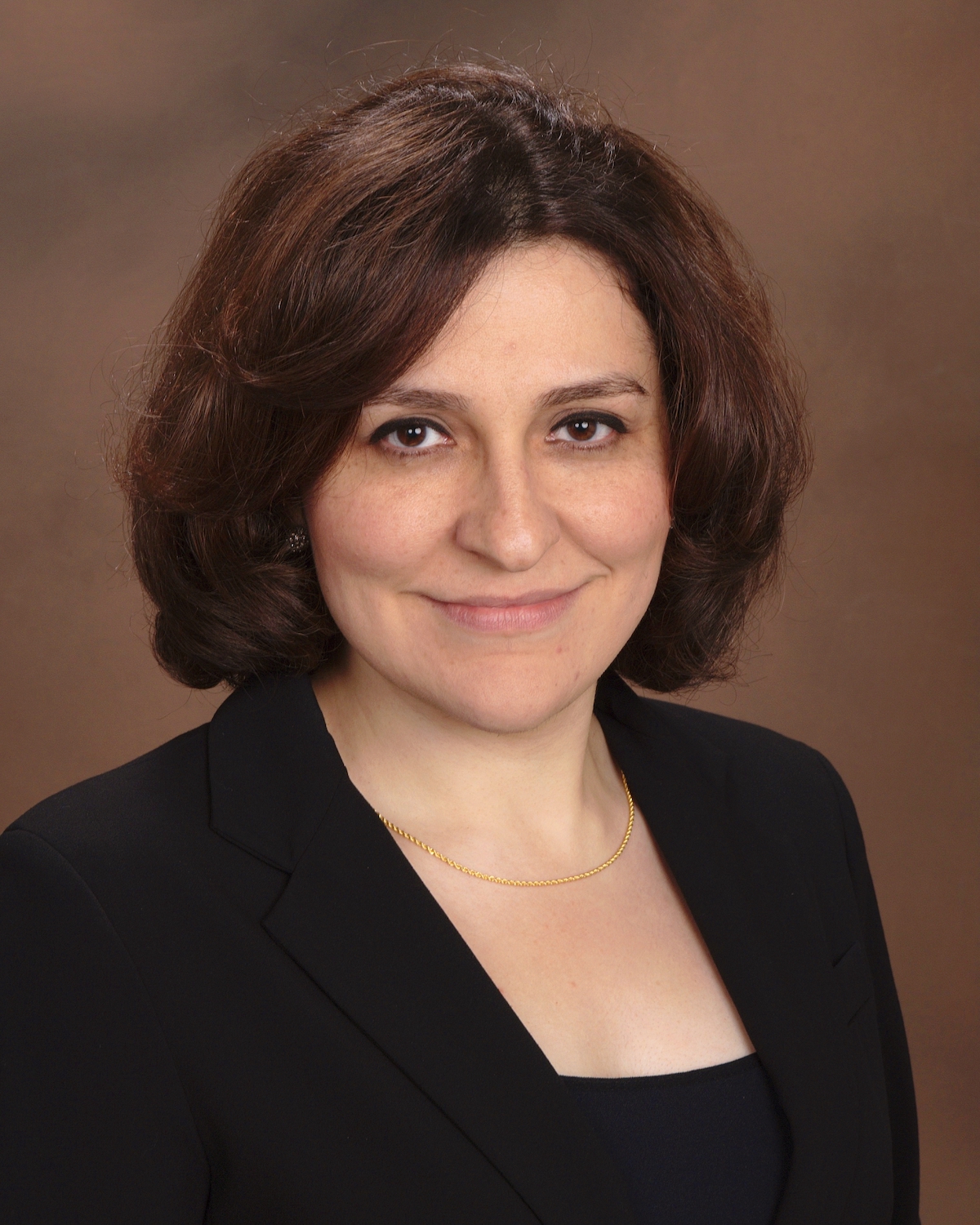NeuroImmunopathogenesis Unit (NIU)
Established in 2022
Farinaz Safavi, M.D., Ph.D.
Assistant Clinical Investigator
Specialty(s): Neurology Provides direct clinical care to patients at NIH Clinical Center

Major Areas of Research
- Neurological manifestations of primary and acquired immunodeficiency
- Role of immune related gene defects in neurons and glial cell function
- The effect of host immune defects on CNS immune-compartment
- Investigate the role of Inborn Errors of Immunity (IEIs) in patients with atypical neuroinflammatory, neuroinfectious and neurodegenerative diseases
Program Description
Inborn Errors of Immunity (IEIs) are genetic disorders of the immune system with clinical manifestations of infection and autoinflammatory syndrome. Neurological disorders are one of the common causes of irreversible morbidity and mortality in patients with IEIs. Neuroinflammatory, neuroinfectious and neurodegenerative diseases have been reported extensively in this patient population but the role of immune related gene defects on development, function and immunoregulation of nervous system is still unknown.
The NeuroImmunopathogenesis Unit performs an integrated bench to bedside research to better understand the role of immunodeficiencies in nervous system. Taking a comprehensive approach to evaluate profile and function of immune cells in both blood and cerebrospinal fluid, the most adjacent cells to nervous system, provides valuable understanding about dynamic of immune cells and responses in CNS immune-compartment paving the path to find more targeted therapeutics. By using induced pluripotent stem cell technology, the unit also investigates the role of immune related gene defects in development and function of human neurons and glia to find underlying cellular and molecular pathways in immunodeficient patients with neurological disorders.
Furthermore, rare neuroinfectious, neuroinflammatory and neurodegenerative diseases with atypical clinical features can be a manifestation of immune related gene defects. Our holistic clinical and basic immunology, neuroscience and genetic approach facilitates to better understand the underlying mechanisms of these presentations to clarify diagnosis and treatments of this patients’ complex and often refractory to treatment neurological diseases.
Biography
Education
M.D., Tehran University of Medical Sciences, Tehran, Iran
Ph.D., State University of New York, Health Science Center at Brooklyn
Dr. Safavi received her M.D. degree from Tehran University of Medical Sciences followed by a Ph.D. degree in Neural and Behavioral Science from State University of New York, Health Science Center at Brooklyn. After graduation, she joined department of neurology at Thomas Jefferson University as a research fellow working on immunopathogenesis of neuroinflammatory diseases in both mouse model of neuroinflammation and human immune cells under supervision of Dr. A.M Rostami. She then moved to New York City to complete her neurology residency training at Icahn School of Medicine at Mount Sinai and finished her clinical training by a clinical fellowship in neuroimmunology and neuroinfectious diseases under supervision of Dr. Avindra Nath in section of infections of nervous system (SINS) at NINDS. After completion of her clinical training, she was selected for the NIAID transition program in clinical research to establish a basic and clinical research program on the role of genetic and acquired host immune defects in nervous system.
Selected Publications
Lee MH, Perl DP, Steiner J, Pasternack N, Li W, Maric D, Safavi F, Horkayne-Szakaly I, Jones R, Stram MN, Moncur JT, Hefti M, Folkerth RD, Nath A. Neurovascular injury with complement activation and inflammation in COVID-19. Brain. 2022 Jul 5:awac151.
Safavi F, Thome R, Li Z, Wang L, Rasouli J, Ciric B, Zhang GX, Rostami A. A serine protease inhibitor induces type 1 regulatory T cells through IFN-γ/STAT1 signaling. Cell Mol Immunol. 2020 Sep;17(9):1004-1006.
Safavi F, Nath A. Silencing of immune activation with methotrexate in patients with COVID-19. J Neurol Sci. 2020 Aug 15;415:116942.
Safavi F, Thome R, Li Z, Zhang GX, Rostami A. Dimethyl fumarate suppresses granulocyte macrophage colony-stimulating factor-producing Th1 cells in CNS neuroinflammation. Neurol Neuroimmunol Neuroinflamm. 2020 May 5;7(4):e729.
Rasouli J, Ciric B, Imitola J, Gonnella P, Hwang D, Mahajan K, Mari ER, Safavi F, Leist TP, Zhang GX, Rostami A. Expression of GM-CSF in T Cells Is Increased in Multiple Sclerosis and Suppressed by IFN-β Therapy. J Immunol. 2015 Jun 1;194(11):5085-93.
El-Behi M, Ciric B, Dai H, Yan Y, Cullimore M, Safavi F, Zhang GX, Dittel BN, Rostami A. The encephalitogenicity of T(H)17 cells is dependent on IL-1- and IL-23-induced production of the cytokine GM-CSF. Nat Immunol. 2011 Jun;12(6):568-75.

